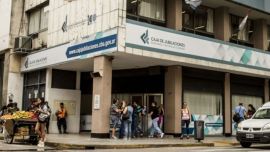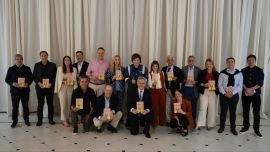Cattle farmers on Thursday ended a two-week halt on domestic beef sales called to protest a government-imposed pause in exports designed to moderate skyrocketing meat prices.
The country is the fourth-largest beef exporter in the world, and one of its biggest consumers per capita, and revenues from the sector are vital to the country's economy.
Back in mid-May, President Alberto Fernández's government announced a one-month suspension on foreign meat sales to "get the sector in order, restrict speculative practices and avoid tax evasion in foreign trade."
Poverty affects 42 percent of Argentines, and Fernández is trying to reduce the cost of living by implementing price controls.
The Peronist leader insisted Argentina could not accept the recent rise in meat prices in a country already reeling from three years of recession and the adverse economic impact of the coronavirus pandemic.
The price rises contributed to inflation, already among the highest in the world, reaching 17.6 percent in the first quarter of 2021, according to the INDEC national statistics institute.
In response to the government's move, cattle farmers declared a "cessation of all categories of cattle trade."
On Thursday, the Federación Agraria Argentina ("Agrarian Federation of Argentina") announced a resumption of deliveries, while seeking an urgent meeting with Fernández.
"We must find alternatives that do not destroy Argentine livestock farming, that do not affect the wallet of the Argentine people, that do not make us lose our international credibility and that do not affect the national economy," farmers groups said in a statement.
According to the Argentine chamber of industry and commerce, the industry employs some 100,000 people.
The protest did not harm domestic availability, with butcheries and markets having stocked up and consumption dropping due to a sharp price increase – some 65.3 percent year-on-year in April.
Meat consumption in Argentina has been declining year after year, from 69.3 kilogrammes per person in 2009 to 49.2 kilogrammes today, according to the CICCRA (Cámara de la Industria y el Comercio de Carnes y Derivados) industry chamber.
In 2020, the country exported 819 billion tons of beef and cow leather worth US$3.37 billion – a 16.5-percent drop from 2019 – primarily to China, Germany and Israel, according to INDEC.
– TIMES/AFP























Comments